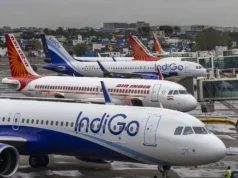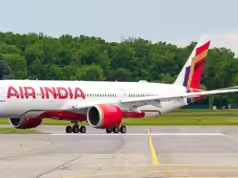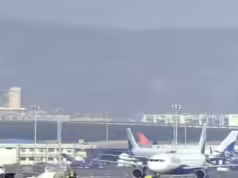According to the report, the number of passengers carried increased by 8.19% month over month when compared to the same months last year. The Directorate General of Civil Aviation (DGCA), which oversees civil aviation, announced on Wednesday that domestic airlines carried 16.13 million passengers in 2024, more than the 15.2 million passengers they carried in 2023.
According to the report, the number of passengers carried increased by 8.19% month over month when compared to the same months last year.
According to the December traffic data, low-cost airline SpiceJet had the highest rate of cancellations among the nation’s major commercial airlines (Air India Group, IndiGo, Akasa Air, and SpiceJet), with IndiGo coming in second. In December 2024, scheduled domestic airlines had an overall cancellation rate of 1.07%.
According to the DGCA’s traffic data report, Fly Big had the highest cancellation rate (19.23%), followed by Alliance Air (4.35%) and IndiaOne Air (2.83%).
IndiGo had a cancellation rate of 1.17%, while SpiceJet had 1.81%.
As the data indicated that 44.4% of flights were canceled for miscellaneous reasons, followed by weather at 27.2%, technical at 20.8%, operational at 6.4%, and commercial at 1.3%, the report showed that miscellaneous, technical, and operational issues were the main causes of flight cancellations.
817 passenger complaints were filed against scheduled domestic airlines in December, or around 0.55 complaints for every 10,000 passengers throughout the month. Alliance Air, SpiceJet, and Fly Big, a regional airline based in Gurugram, were the top three airlines with passenger complaints.
The most frequent complaints were over customer service, baggage, refunds, and flight issues. According to the report, flight issues accounted for 24.6% of complaints, followed by baggage issues (25.7%), refunds (21.3%), and customer service issues (7.7%).
In the four metro airports (Delhi, Mumbai, Bangalore, and Hyderabad), IndiGo had the best on-time performance (OTP) at 73.4%, followed by Air India at 67.6% and Akasa Air at 62.7%, according to the DGCA study.
According to the survey, reactive factors accounted for 66% of airline takeoff delays, with air traffic control coming in second (12%).







